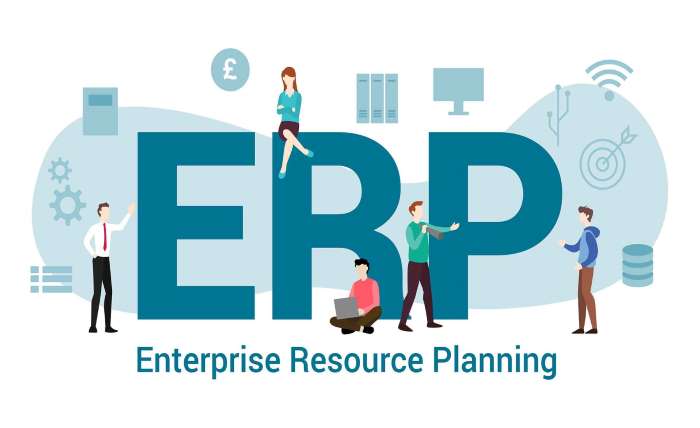Choosing the right ERP to start your retail business, must read

ERP stands for Enterprise Resource Planning, which is an integrated system that helps streamline and automate business processes. It is designed to improve organizational efficiency, support better decision-making, increase visibility, and enhance customer satisfaction. ERP solutions typically include modules for financials, manufacturing, supply chain, inventory, customer relationship management (CRM), project management, and human resources.
Identify your business needs
To determine the needs of our business for an Enterprise Resource Planning (ERP) system, we need to consider the ways in which our current process isn’t meeting our needs. We should review our current operations and think about how an ERP system could help streamline processes, increase efficiency, reduce errors, and help us better understand our business. Additionally, we need to consider the financial cost of the system, the training and implementation required, and the long-term maintenance and support. Ultimately, implementing an ERP system is a big decision and it’s important to make sure that it fits our business needs and makes sense for our operations.
Research potential solutions
we recommend taking a look at Gartner’s Magic Quadrant for ERP solutions to get an overview of the different solutions available. Additionally, you can research ERP solutions more in-depth by reading reviews and case studies, as well as checking out comparison sites like Capterra to compare features and pricing. We hope this information helps you in your search for the best ERP solution for your business.
Consider scalability
When considering scalability for choosing an ERP system, it is important to look for a system that is designed to grow with your business. Look for features that allow for proactive scalabilities, such as automated processes, cloud-based storage, and automated updates. Additionally, consider a system that is easily customizable to meet your changing business needs. Finally, make sure the system supports multiple users with access control for different levels of access. With these features, you can ensure that your ERP system is able to grow with your business.
Consider implementation
Choosing an ERP system for your business can be a daunting task, but it’s essential for success in the long run. To get started, start by making a list of your business needs and goals. Identify what you need from an ERP system, such as customer relationship management, inventory management, financials, and reporting. Then, do some research to find an ERP solution that meets your needs and budget. Ask whether they offer any customization options and read reviews to get an idea of their customer service and satisfaction. Once you’ve narrowed down your list, contact the vendors and ask for demos and pricing information. Finally, make sure to review the contract and ask any questions you may have before signing. By taking the time to do your research, you can make an informed decision that will set your business up for success.
Consider customer support
ERP systems are a great way to streamline operations and increase efficiency, so it’s important to make sure that customer support is taken into account when making such an important decision. One thing to consider is the type of customer support the vendor can provide. Do they have a knowledgeable and friendly team that can answer questions quickly and accurately? Do they offer support through different channels such as phone, email, or chat? Additionally, look into the response time and whether or not they offer 24/7 support. Having the right customer support can make a huge difference in the success of an ERP system, so it’s important to take the necessary time to make sure you choose the best vendor.
The future of Enterprise Resource Planning (ERP) is very exciting! As businesses continue to evolve and become more efficient, ERP systems are becoming more sophisticated and provide more comprehensive solutions. In the future, ERP systems will be able to connect to each other and offer more complex and powerful capabilities. Analytical and predictive analytics will become more prevalent, allowing businesses to make better decisions in real-time. Additionally, ERP systems will be able to integrate with emerging technologies such as artificial intelligence, machine learning, and the Internet of Things, to provide even more comprehensive solutions. Finally, cloud-based ERP systems will become the norm, allowing businesses to access their ERP systems anywhere and anytime. As ERP systems continue to evolve, businesses will be able to do more with their data, automate processes, and make better decisions.




